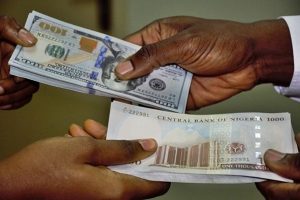Nigeria’s Foreign Debt Servicing Surges by 107.7% to ₦3.8 Trillion in Eight Months
Nigeria’s foreign debt servicing has skyrocketed by 107.7% within the first eight months of 2024, reaching ₦3.8 trillion. This figure far exceeds the initial budget projection of ₦1.83 trillion. The increase of ₦1.97 trillion poses serious implications for the nation’s fiscal health and economic stability.

Rising Nigeria’s Debt Servicing Costs
The Budget Office recently published the 2025-2027 Medium Term Expenditure Framework and Fiscal Strategy Paper (MTEF & FSP). This report highlights the growing financial strain on Nigeria’s government as it grapples with rising global interest rates, a depreciating naira, and increased domestic borrowing.
The government’s total allocation for debt servicing during this period stood at ₦7.41 trillion. This amount includes both domestic and foreign debts along with sinking funds and interest payments on securitized ways and means. By August 2024, the government had already spent ₦5.51 trillion—34.4% of this total budgeted amount—on servicing its debts.
Domestic Debt Servicing Trends
While foreign debt servicing surged, domestic debt servicing slightly exceeded expectations as well, rising by just 2%. The budget had allocated ₦3.53 trillion for domestic debt servicing, but actual spending reached ₦3.6 trillion, a modest increase of ₦71 billion.
Revenue Generation Challenges
This growing burden of debt servicing is concerning because it consumes a significant portion of government revenues. By August 2024, Nigeria’s Federal Government generated ₦12.74 trillion in retained revenue, achieving 73.8% of its targeted ₦17.25 trillion for the year.
However, underperformance in oil revenues—a critical source of income—hampered this revenue generation.
Nigeria’s Oil Revenue Shortfalls
The report indicates that oil revenues fell short due to persistent challenges in the sector, including price volatility and production constraints. While gross oil and gas revenue for 2024 was projected at ₦20 trillion, only ₦9.83 trillion was realized by August—representing a performance rate of just 72.1%. This shortfall significantly impacts Nigeria’s financial health and its ability to meet debt obligations.
Positive Developments in Non-Oil Revenue
Despite these challenges, non-oil revenue generation showed positive developments, totaling ₦3.81 trillion—an impressive achievement reflecting 160.1% of the targeted amount. Corporate Income Tax (CIT) collections amounted to ₦1.71 trillion, exceeding targets by 74.5%. Value Added Tax (VAT) contributions reached ₦530.41 billion—55.1% above expectations.
Impact of Naira Depreciation
However, these gains have not offset the pressures from rising debt servicing costs and underperforming oil revenues. The depreciation of the naira has further increased the cost of servicing external debts denominated in foreign currencies.
Concerns About Debt-to-GDP Ratio
Analysts have raised concerns about Nigeria’s growing debt-to-GDP ratio, which exceeded 50% for the first time by March 2024 following revised GDP figures. This trend raises alarms about fiscal sustainability and highlights the need for urgent reforms in how Nigeria manages its public finances.
The Need for Strategic Reforms in Nigeria
The federal government previously claimed that debt servicing now consumes a reduced portion of national revenue; however, this recent surge contradicts those assertions and points to deeper issues within Nigeria’s economic framework—a reliance on borrowing that perpetuates a cycle of debt accumulation rather than financing critical development projects.
Looking Ahead: A Staggering Deficit
Economists warn that Nigeria’s fiscal challenges are likely to intensify further as the proposed 2025 budget is expected to feature a staggering ₦14 trillion deficit—a clear indication that revenue generation is falling short of expenditure needs.
This deficit will likely require additional borrowing, perpetuating a vicious cycle where resources increasingly divert to debt servicing at the expense of economic growth and development initiatives.
A Call for Urgent Action
The soaring cost of foreign debt servicing highlights an urgent need for strategic reforms aimed at improving revenue mobilization while curbing wasteful expenditures across government sectors. Addressing inefficiencies within the oil sector will also be crucial if Nigeria hopes to stabilize its economy and ensure sustainable growth moving forward.
Nigeria stands at a critical juncture as it faces unprecedented challenges related to its foreign debt obligations. The government’s ability to navigate these fiscal pressures will be pivotal not only for its economic stability but also for the well-being of its citizens who rely on effective governance and sound economic policies.

